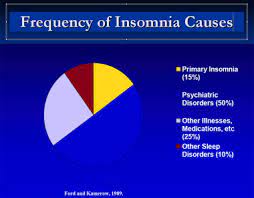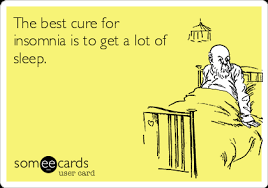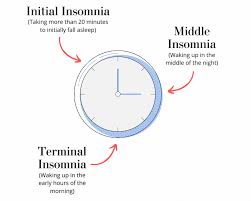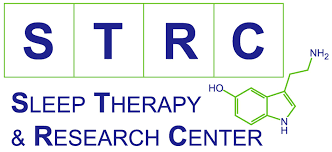Understanding Initial Insomnia: Causes and Solutions
Initial insomnia, also known as sleep onset insomnia, is a common sleep disorder characterized by difficulty falling asleep at the beginning of the night. Individuals experiencing initial insomnia may find themselves lying awake in bed for an extended period before finally drifting off to sleep.
Causes of Initial Insomnia
There are several factors that can contribute to the development of initial insomnia:
- Stress and Anxiety: High levels of stress or anxiety can make it difficult to relax and fall asleep.
- Poor Sleep Hygiene: Irregular sleep schedules, excessive screen time before bed, and disruptive bedtime routines can disrupt the body’s natural sleep-wake cycle.
- Caffeine and Stimulants: Consuming caffeine or other stimulants close to bedtime can interfere with the ability to fall asleep.
- Underlying Medical Conditions: Conditions such as depression, chronic pain, or restless leg syndrome can contribute to initial insomnia.
Solutions for Initial Insomnia
If you’re struggling with initial insomnia, there are several strategies you can try to improve your sleep onset:
- Establish a Bedtime Routine: Create a relaxing bedtime routine that signals to your body that it’s time to wind down and prepare for sleep.
- Avoid Stimulants: Limit caffeine intake in the afternoon and evening, and avoid stimulating activities close to bedtime.
- Create a Sleep-Conducive Environment: Keep your bedroom dark, quiet, and cool to promote optimal conditions for sleep.
- Practice Relaxation Techniques: Engage in relaxation techniques such as deep breathing exercises or meditation before bed to calm your mind and body.
- Seek Professional Help: If initial insomnia persists despite trying self-help strategies, consult a healthcare provider or sleep specialist for further evaluation and treatment options.
By addressing the underlying causes of initial insomnia and implementing healthy sleep habits, you can improve your ability to fall asleep quickly and enjoy restful nights of quality sleep.
Understanding Initial Insomnia: Key Questions Answered
- What is initial insomnia?
- What are the common symptoms of initial insomnia?
- What causes initial insomnia?
- How is initial insomnia diagnosed?
- What are the effects of untreated initial insomnia?
- What lifestyle changes can help alleviate initial insomnia?
- Are there any natural remedies or supplements that can aid in managing initial insomnia?
- When should I seek professional help for my initial insomnia?
What is initial insomnia?
Initial insomnia, also known as sleep onset insomnia, refers to a common sleep disorder characterized by difficulty falling asleep at the beginning of the night. Individuals experiencing initial insomnia often find themselves lying awake in bed for an extended period before finally drifting off to sleep. This condition can be caused by various factors such as stress, poor sleep hygiene, caffeine consumption, and underlying medical conditions. Implementing strategies like establishing a bedtime routine, avoiding stimulants, creating a sleep-conducive environment, practicing relaxation techniques, and seeking professional help when needed can help individuals manage and improve their initial insomnia symptoms for better quality sleep.
What are the common symptoms of initial insomnia?
Individuals experiencing initial insomnia may exhibit common symptoms such as difficulty falling asleep at the beginning of the night, prolonged periods of lying awake in bed before sleep onset, heightened levels of stress or anxiety related to bedtime, and a sense of frustration or restlessness due to the inability to initiate sleep promptly. Other symptoms may include racing thoughts, a racing heart rate, and an overall feeling of alertness or hyperarousal when attempting to transition into sleep. These symptoms can impact one’s overall well-being and daily functioning, highlighting the importance of addressing initial insomnia through appropriate interventions and lifestyle modifications.
What causes initial insomnia?
Initial insomnia, also known as sleep onset insomnia, can be caused by various factors. Common triggers for this type of sleep disorder include high levels of stress and anxiety, which can make it challenging to relax and fall asleep. Poor sleep hygiene, such as irregular sleep schedules and excessive screen time before bed, can disrupt the body’s natural sleep-wake cycle and contribute to difficulty initiating sleep. Additionally, consuming caffeine or other stimulants close to bedtime can interfere with the ability to fall asleep smoothly. Underlying medical conditions like depression, chronic pain, or restless leg syndrome may also play a role in the development of initial insomnia. Addressing these potential causes and implementing strategies to improve sleep hygiene can help individuals manage and overcome initial insomnia effectively.
How is initial insomnia diagnosed?
Diagnosing initial insomnia typically involves a comprehensive evaluation of an individual’s sleep patterns and overall health. Healthcare providers may conduct a thorough medical history review to identify any underlying conditions or factors contributing to the sleep onset difficulties. Additionally, they may use tools such as sleep diaries or questionnaires to gather information about the duration, frequency, and severity of the insomnia symptoms. In some cases, healthcare providers may recommend overnight sleep studies or other specialized tests to assess sleep quality and rule out potential sleep disorders. A collaborative approach between the individual and healthcare provider is essential in accurately diagnosing and addressing initial insomnia to develop an effective treatment plan tailored to the individual’s needs.
What are the effects of untreated initial insomnia?
Untreated initial insomnia can have a range of negative effects on both physical and mental well-being. Chronic sleep onset difficulties can lead to daytime fatigue, irritability, difficulty concentrating, and impaired cognitive function. Prolonged lack of quality sleep may weaken the immune system, increasing susceptibility to illness and impacting overall health. Untreated initial insomnia can also exacerbate existing conditions such as anxiety or depression, further compromising mental health. Additionally, persistent sleep deprivation can contribute to an increased risk of accidents or errors due to impaired judgment and slower reaction times. Seeking timely intervention and implementing effective strategies to address initial insomnia is crucial in preventing these detrimental consequences and promoting overall health and quality of life.
What lifestyle changes can help alleviate initial insomnia?
Making lifestyle changes can be instrumental in alleviating initial insomnia. Simple adjustments such as establishing a consistent bedtime routine, avoiding stimulants like caffeine close to bedtime, creating a comfortable sleep environment, practicing relaxation techniques before sleep, and engaging in regular exercise can all contribute to improving sleep onset. By incorporating these lifestyle changes into your daily routine, you can help regulate your body’s natural sleep-wake cycle and promote better quality sleep, ultimately reducing the impact of initial insomnia on your overall well-being.
Are there any natural remedies or supplements that can aid in managing initial insomnia?
For individuals seeking natural remedies or supplements to help manage initial insomnia, there are several options that may offer relief. Herbal supplements such as valerian root, chamomile, or passionflower are known for their calming properties and may promote relaxation before bedtime. Melatonin, a hormone that regulates the sleep-wake cycle, is another popular supplement that can help improve sleep onset. Additionally, practicing relaxation techniques like mindfulness meditation or progressive muscle relaxation can be effective in reducing stress and anxiety levels, which are common contributors to initial insomnia. It’s important to consult with a healthcare provider before trying any new supplements to ensure they are safe and appropriate for your individual needs.
When should I seek professional help for my initial insomnia?
If you find that your initial insomnia persists despite trying self-help strategies and interferes with your daily functioning and quality of life, it may be time to seek professional help. Consulting a healthcare provider or a sleep specialist can provide you with a comprehensive evaluation of your sleep patterns and potential underlying causes of your insomnia. They can offer personalized treatment options, such as cognitive-behavioral therapy for insomnia (CBT-I), medication management, or addressing any underlying medical conditions contributing to your sleep difficulties. Seeking professional help for persistent initial insomnia can help you better understand and manage your sleep issues effectively.




